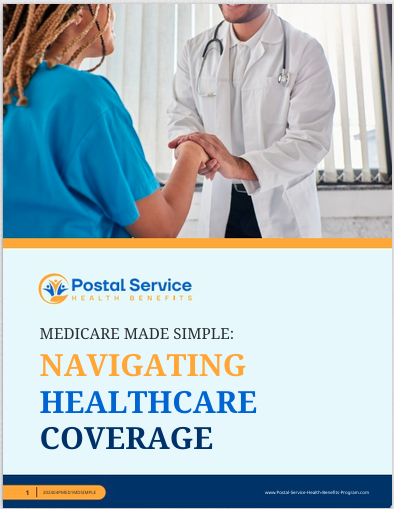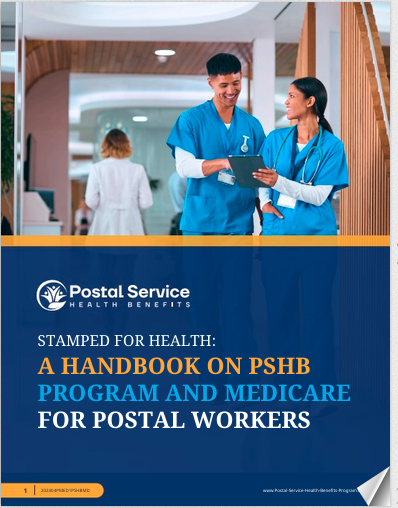Key Takeaways
-
Failing to enroll in Medicare Part B when required can cause your PSHB benefits to be significantly reduced or even canceled.
-
Not all retirees are affected the same way—eligibility dates, exemptions, and coordination rules determine how PSHB and Medicare interact.
Why This Medicare Mistake Is More Common Than You Think
The Postal Service Health Benefits (PSHB) Program was designed to offer long-term, comprehensive health coverage to Postal Service employees, retirees, and their eligible family members. Starting in 2025, the PSHB operates under a new set of rules that directly tie your eligibility and benefits to your Medicare enrollment decisions—especially Medicare Part B.
You might assume that if you already have PSHB, you’re fully covered well into retirement. But here’s the catch: if you’re Medicare-eligible and you fail to enroll in Medicare Part B when required, your PSHB plan may either reduce your benefits significantly—or stop covering you entirely. This isn’t a hypothetical concern. It’s happening now in 2025, especially to those who don’t understand the timeline or who misread exemption rules.
Understanding the PSHB and Medicare Part B Relationship
The PSHB Program is replacing the Federal Employees Health Benefits (FEHB) Program for postal workers and retirees. Unlike FEHB, which did not mandate Medicare Part B enrollment, PSHB introduces conditional requirements:
-
If you turn 65 on or after January 1, 2025 and you’re a Postal retiree (or a family member of one), you must enroll in Medicare Part B to keep your full PSHB coverage.
-
If you were already retired before January 1, 2025, or were 64 or older as of January 1, 2025, you’re exempt from the Part B requirement.
-
If you reside overseas, or qualify for care through VA or Indian Health Services, you may also be exempt.
Failing to enroll in Medicare Part B when you’re not exempt doesn’t just trigger late penalties from Medicare—it can also nullify or severely restrict your PSHB benefits.
What Happens If You Don’t Enroll in Medicare Part B
As of 2025, PSHB plans are designed to coordinate with Medicare. That means your plan assumes Medicare will pay primary for certain services, and PSHB pays secondary. If you don’t have Medicare Part B and are required to, here’s what you risk:
-
No secondary coverage for outpatient care: PSHB plans will no longer step in to pay the 80% that Medicare Part B would have covered. That leaves you fully responsible for outpatient bills.
-
Higher deductibles and coinsurance: You’ll be subject to much higher out-of-pocket costs because the PSHB plan will treat you as if you should have Medicare.
-
Limited provider access: Some PSHB plans may limit access to certain networks for retirees who lack Medicare.
-
Loss of prescription drug coverage under Medicare Part D EGWP: This is a significant loss, particularly if you rely on high-cost medications.
All of this effectively makes your health coverage incomplete—even if you’ve paid your PSHB premiums on time.
Timelines and Deadlines You Need to Know
To avoid this costly mistake, you need to be aware of key timeframes:
-
Initial Medicare Enrollment Period (IEP): This is a 7-month window surrounding your 65th birthday (3 months before, the month of, and 3 months after). If you’re newly eligible for Medicare in 2025, this is when you must enroll in Part B.
-
General Enrollment Period (GEP): If you missed your IEP, the GEP runs from January 1 to March 31, but coverage doesn’t begin until July 1, and you may face lifetime late penalties.
-
Special Enrollment Period (SEP): For 2024, there was a SEP from April to September for affected postal retirees to enroll penalty-free. That window has now closed. Going forward, you must rely on standard Medicare enrollment rules unless another SEP applies.
Common Misunderstandings That Can Cost You
Here are several points where many PSHB enrollees go wrong:
-
Assuming PSHB is a full replacement for Medicare: It isn’t. After 65, PSHB works best when paired with Medicare.
-
Confusing exemption rules: Being retired before 2025 doesn’t exempt your spouse or dependents if they aren’t.
-
Ignoring Medicare Part B communications: Some retirees simply discard notices from Medicare, not realizing they’re time-sensitive.
-
Thinking enrollment is automatic: Unless you’re already receiving Social Security benefits before 65, you are not automatically enrolled in Part B.
How PSHB and Medicare Coordinate in 2025
In the current system, when you are enrolled in both PSHB and Medicare, you get several benefits:
-
Reduced deductibles and coinsurance: Your PSHB plan may waive certain cost-sharing requirements.
-
Expanded provider access: More specialists may accept your plan when it’s backed by Medicare.
-
Lower prescription costs: Thanks to integrated Part D Employer Group Waiver Plans (EGWPs), your medication expenses may be capped.
However, none of this applies if you don’t enroll in Part B when required. That’s why understanding your timeline and eligibility is essential.
Can You Ever Opt Out of Part B Without Losing PSHB?
The short answer: yes, but only if you’re exempt.
You’re considered exempt from the Medicare Part B requirement if:
-
You retired on or before January 1, 2025.
-
You were 64 or older as of January 1, 2025.
-
You reside outside the United States and its territories.
-
You are enrolled in VA or Indian Health Services and rely on those systems.
In these cases, you can maintain your PSHB coverage without enrolling in Part B. However, even if you’re exempt, it’s still worth considering Part B enrollment because of the coordination benefits it brings.
What to Do If You Missed Your Enrollment Period
If you didn’t enroll in Medicare Part B during your Initial Enrollment Period and you’re not exempt, act immediately:
-
Use the General Enrollment Period (January 1 – March 31) to apply for Part B.
-
Your coverage starts July 1, which means you may have a coverage gap in the meantime.
-
Expect late enrollment penalties, which are 10% of the standard premium for each 12-month period you delayed.
Also, notify your PSHB provider once your Medicare Part B enrollment becomes active. Coordination will only apply after the effective date of your enrollment.
What Happens to Your Prescription Drug Coverage
In 2025, most PSHB plans integrate their prescription drug benefits with a Medicare Part D Employer Group Waiver Plan (EGWP). These plans:
-
Cover a wide range of medications.
-
Cap insulin costs at $35/month.
-
Have a $2,000 out-of-pocket maximum under the new 2025 Part D reforms.
However, this coverage is tied to Medicare eligibility. If you are Medicare-eligible but choose not to enroll in Part B, you forfeit access to the EGWP entirely, losing all Part D-related benefits under PSHB.
Why This Mistake Can Cost You More Than Just Coverage
Failing to enroll in Medicare Part B doesn’t just affect your healthcare—it can damage your finances long-term:
-
Uncapped out-of-pocket costs if Medicare isn’t covering your outpatient care.
-
Lifetime Medicare penalties that raise your Part B premiums for good.
-
Drug coverage gaps leading to massive bills for high-cost medications.
-
Potential coverage denials by PSHB for services they expect Medicare to handle.
In short, this isn’t a simple paperwork issue. It’s a decision that impacts your care, your wallet, and your peace of mind for the rest of your retirement.
Protecting Your PSHB Benefits Starts with Awareness
By now, it should be clear that the relationship between PSHB and Medicare isn’t just an administrative formality—it’s a key part of your retirement planning. Misunderstanding the rules, missing a deadline, or assuming you’re exempt can lead to irreversible coverage losses.
Speak to a licensed agent listed on this website if you’re unsure about your status, deadlines, or what steps to take next. An expert can walk you through eligibility rules, timeline planning, and potential cost impacts based on your unique situation.







